Women warned amid shocking surge in sexual assaults
As Melbourne comes back to life at night, women are being attacked at shocking rates and police warn many are being targeted through rideshares or dating apps.
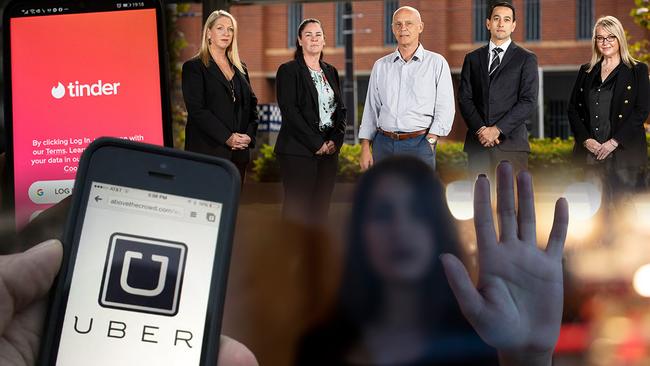
Police & Courts
Don't miss out on the headlines from Police & Courts. Followed categories will be added to My News.
Women have been warned that sex predators are back on the streets, and fake rideshare drivers and other sexual creeps are taking advantage of Melbourne’s rejuvenated night-life.
Senior sex crime detectives say women are being attacked on the streets and behind closed doors at shocking rates.
Some of the most heinous crimes include sexual deviants masquerading as rideshare drivers to pick up vulnerable women and sexually assault them.
Dating apps such as Tinder are routinely used by men who create fake profiles to lure and then violate women before deleting evidence of their contact.
Specialist sexual crimes and child abuse detectives have shed light on these disturbing crimes as part of Sexual Assault Awareness Month.
They want victims to know sexual violence is unacceptable and help is available.
Detective Sergeant Mark Farrugia of the sexual crimes squad said that since the lifting of Covid-19 restrictions, there had been a surge in sexual assault reports by women at or leaving licensed venues.

“We are getting an influx of jobs where people are meeting others at nightclubs or potentially with transport on the way home, like rideshares where people don’t purport to be who they are and vulnerable people, often females, are being taken advantage of,” he said.
On many occasions women are targeted while waiting on the street for legitimate rideshares. Often they are drunk and therefore seen as easy prey.
Detectives are currently hunting a man who made unwanted sexual advances towards a young woman who got into his car thinking it was an Uber.
Detective Sergeant Marsha Browning said the driver first attempted to kiss his isolated victim.
Petrified, she convinced him she needed to use a toilet and used that opportunity to flee to safety.
Strangers stayed with the young woman until her mother arrived.
Another woman is awaiting forensic test results to determine if she was sexually assaulted by a stranger who ushered her into his car as she left a club in Southbank.
“She has no memory how she got home, but remembers a person being above her on the side of the street and assisting her into his car. We can’t find him on the Uber app,” Det Sgt Browning said.
Investigators say some sex offenders use the dating apps to “catfish” victims, often deleting their profiles or correspondence later in an attempt to conceal their crimes.
In one recent case, a woman agreed to meet a man she’d spoken to online, to fulfil mutual sexual fantasies.
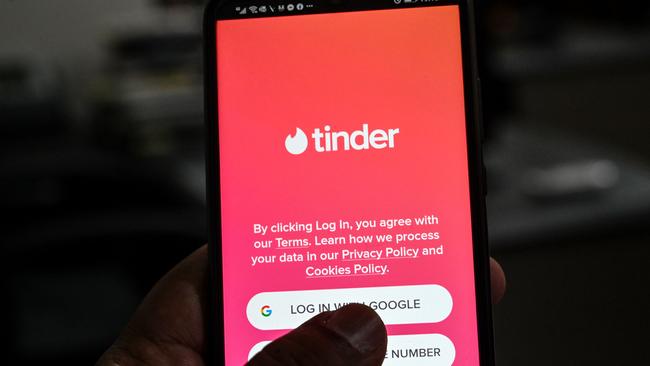
Detective Sergeant Farrugia said that when she met him, he was not the man in the photos he had shown her, and he sexually assaulted her.
“A common way that survivors deal with being sexually offended against is to have a ‘fight, flight or freeze’ response. In this case she froze. She was isolated, didn’t feel safe … and he was able to offend,” he said.
Despite the man’s use of a fake online persona, investigators were able to track him down and take action against him with the assistance of the dating platform.
Evolutions in technology – including encryption and disappearing messages – pose challenges for police.
But just as predators adapt to new technologies, the force has also evolved its cyber policing capabilities.
Apps such as Tinder or Uber assist police by handing over information needed in sex assault investigations.
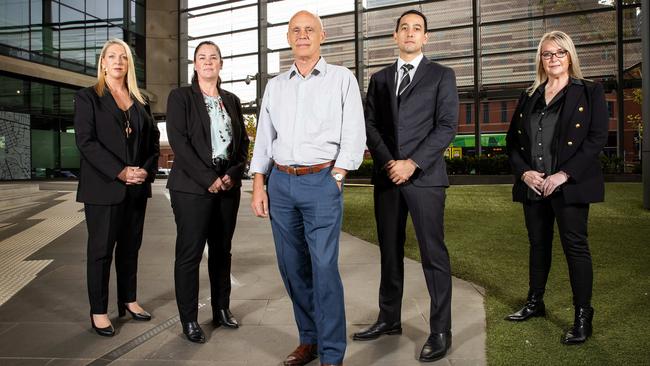
Detective Inspector Juliann Goldrick — head of the sexual crimes squad — said the cases her team investigated were the worst of the worst.
This week they tracked down a man accused of following a young woman into a Broadmeadows home, holding her captive and raping her several times.
Insp Goldrick wants victims to know that if they come forward to police, they will have control over the process.
“Justice looks different to everybody,” she said.
“For some people, it’s just telling their story.
“For others it’s getting support services or a court outcome and we respect all of those decisions.”
Detective Senior Sergeant Bryce Pettett of the Dandenong sexual offences and child abuse investigation team said that while everyone should have the right to safety at all times, this was not realistic and people should consider that.
“No one should ever be a victim. But there are members of our community who are unwell, have mental deficiencies and just some nasty, horrible people,” he said.
“With people out and about again – whether for a chance meeting or people going out on dates – things can go wrong. Predators are back out there.”
New investigations into historic sex crimes
Forty historic sex crimes are being actively reinvestigated by cold case detectives.
The cases – some dating back to the 1980s – are among Victoria’s most horrific unsolved crimes and involve victims who for years believed their attackers would never be caught.
Back in the 1980s when DNA technology was not yet a reality, forward-thinking forensic experts began collecting and freezing crime scene evidence in the hope they could one day be used to identify and prosecute offenders.
Today, cold case detectives are using those samples to track down and charge rapists for crimes they long thought they’d gotten away with.
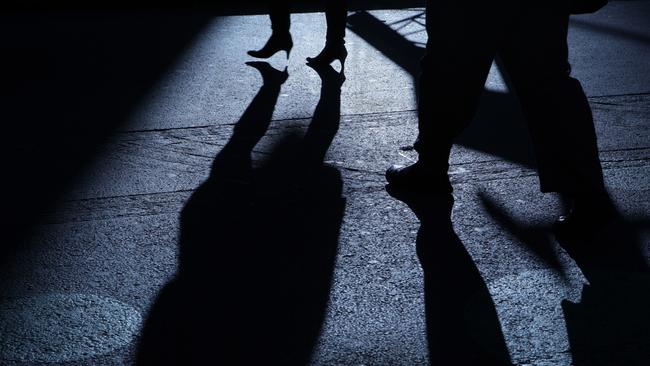
Detective Sergeant Brett Robinson of the Sexual Crimes Squad’s Cold Case Team said 40 historic rape and serious sex crime cases are currently being reinvestigated based on the discovery of potentially crucial evidence.
Unlike contemporary crimes, these cases have cold trails and require extraordinary skill and grit.
“Some of our jobs start with nothing and we have to go back and find diaries, attendance registers and information from boxes in storage and speak to the original investigators who are now retired,” Det Sgt Robinson said.
“It can be a bit like being in a maze – when you turn a corner sometimes there’s a wall in front of you so you have to backtrack and try a different direction.
“It’s a long, arduous process … but then you get a DNA hit on a job and all of a sudden you’ve got a suspect.”
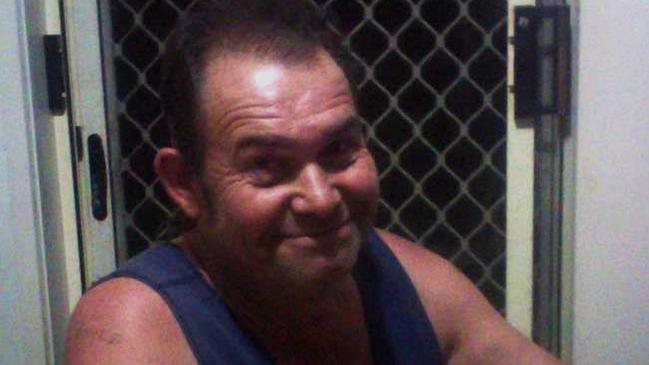
One of the team’s most recent successes was the 2021 conviction of Bendigo rapist Rodney Eric Hampton.
Over the course of two months in 1988, Hampton raped a 16-year-old girl and 20-year-old woman he found walking the streets at night.
DNA taken from one of the horrific attacks sat in storage for decades.
But in 2019, Hampton was finally exposed after providing a matching DNA sample in another sex assault case.
He pleaded guilty to both rapes and was sentenced to 11 years imprisonment.
Both women endured decades of pain and trauma, one telling the court: “I didn’t think I was believed until the police contacted me last year”.
Detective Inspector Juliann Goldrick said survivors of historic sexual abuse will be believed and supported if they choose to come forward.
“It’s never too late to report. We never stop,” she said.
The cases that stuck with detectives
Detective Sergeant Marsha Browning
Melbourne Sexual Offences and Child-abuse Investigation Team
In 2004 I was involved in a case where a 12-year-old girl was coerced into a home six doors down from her grandparents’ home where she was staying.
“There were four young adults inside who bribed and sexually assaulted her.
“For me it was a big eye-opener. I still remember her as a tiny little girl.”
Detective Senior Sergeant Bryce Pettett
Dandenong Sexual Offences and Child-abuse Investigation Team
In the 1980s I investigated a series of sex assaults against a 15-year-old girl by a family member. Her family made physical and emotional threats to try stop her from going to police due to the ‘shame’ it would bring them.
“With my support, she made it through two trials which led to convictions for the accused parties.
“She came out the other side. It took time for her to recover but she now has a successful career, is happily married and has her own kids.
“To see someone move on from a potentially catastrophic situation to now live a fruitful, happy and satisfied life made a big impact on me. We are still friends today.”
Detective Senior Sergeant Tracy Johnston, Sexual Crimes Squad
I supported many complainants, mostly male, during the Royal Commission into Institutional Responses to Child Sexual Abuse.
“For a few I was the first person they had told. I almost felt privileged to walk down that path with them. They were so brave. You carry responsibility with those people when they trust you.”





